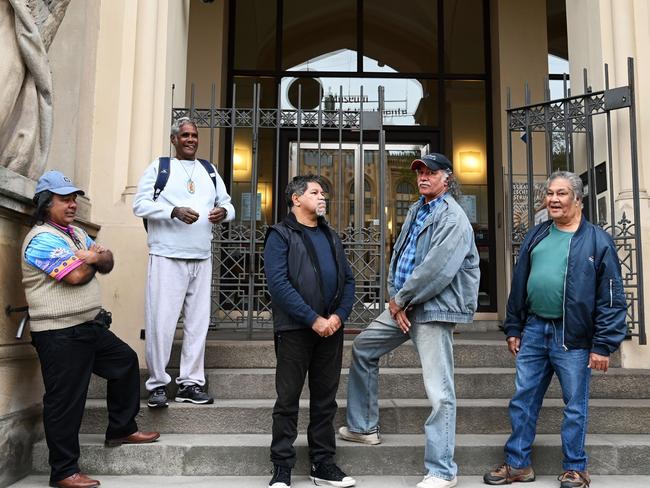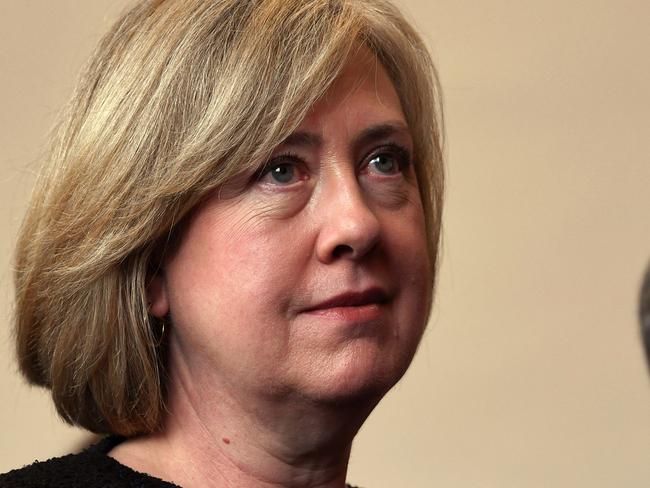Indigenous elder’s remains to be returned to Australia after repatriation event in Munich
It’s been a journey of more than 14,000 kilometres and lasting more than a century, but now the healing can start, with the mummified remains of a senior Indigenous elder finally to be returned home from Germany.
It’s been a journey of more than 14,000 kilometres and lasting more than a century but now the healing can start.
The mummified remains of a senior Indigenous elder will be returned home from Germany after being stolen in 1800s by a failed explorer.
During a traditional smoking ceremony at the Munich Five Continents Museum on Tuesday, elders of the Gimuy Walubara Yidinji mob from Cairns sent the soul of their ancestor home with the body to be transported on April 16.
According to lore, the ancestral king’s soul has been unable to rest since being taken from his land.
Munich is the first to host a series of repatriations this month with collection institutions in Halle, Stuttgart, Berlin and Freiburg to follow suit, returning a total of 53 remains.

The body was stolen by the leader of an expedition, which failed to find a way to the Hodgkinson River Goldfield in Far North Queensland after it had been prepared for burial by the Yidinji people in 1876.
The elder’s wife was also stolen but her remains have not yet been located.
When the man’s body failed to sell it was to be put on display as an ‘ethnological curiosity’ and was eventually acquired by the Five Continents Museum, then the Royal Ethnographic Museum, in 1889.
In the early 19th century, Aboriginal body parts were highly sought-after ‘antiquities’ that were traded by all sorts of people, from opportunists to amateur archaeologists.

Yidinji elder, Gudju Gudju Fourmile thanked the museum for their work, but said it was time for his ancestor’s intercontinental “adventure” – to come to a close.
Mr Fourmile said when the remains were stolen, decapitation and measuring skulls of Indigenous people were “quite acceptable practices by those attempting to set up British outposts”.
“He survived two World Wars, (which was) very outstanding and very courageous I must say,” he said.
“Even though this journey is one of sadness but also happiness we would like to find his partner because we believe when you enter into the next life that journey is not only with yourself, but also with your life partner.”

Australian Ambassador to Germany Lynette Wood said watching the Indigenous community take part in the repatriation was moving and with more remains scattered throughout Germany, the process would continue.
“The look on their faces to be reunited with one of their ancestors, it’s incredibly humbling,” she said.
“In recent years we’ve found German museums and institutions have been incredibly helpful - they’ve been wanting to make the connections, help with the research, help repatriate Indigenous remains back to Australia.

“We know that there’s a lot of remains here, we don’t know how many, we don’t know exactly where they all are, but we’ve got an on-going process.”
The Federal Government has helped facilitate the return of more than 1500 ancestral remains from nine countries in the past 30 years.
Originally published as Indigenous elder’s remains to be returned to Australia after repatriation event in Munich


